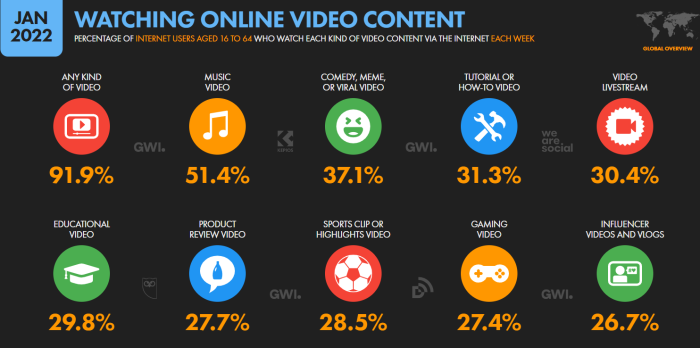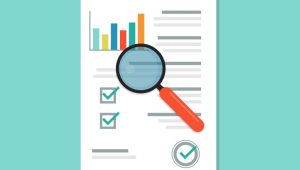How To Develop a Social Media Plan for Your Small Business
 Publié le 5 May 2023
Publié le 5 May 2023
Connect with your customers, grow your audience and sell your products by learning how to develop a social media plan for your small business.
If you’re a small business owner strategizing to scale up your business this year, developing a social media plan should certainly be a part of the strategy.
Social media has emerged as a must-invest marketing platform for businesses big and small.
Why? Because social media channels have become the second most trusted sources for users for online brand research, according to a Hootsuite survey.

Image via Hootsuite
As a result of the recent pandemic, small businesses are redefining themselves, connecting with their audience and selling their products online by striving to create a strong social media presence.
This also means that the competition is getting tougher.
While small businesses can’t spend lavishly on social media marketing, they can adopt smart techniques to create a targeted social media plan to achieve exceptional ROI.
Do you want to create such a plan?
Here are actionable tips you can use to learn how to develop a social media plan for your small business in 2023.
7 Actionable Tips for Developing a Social Media Plan
Developing a social media plan is all about translating your business goals into a marketing strategy and coming up with the best roadmap to execute it.
Take note of these 7 tips for successful social media strategy creation.
1. Set Actionable Goals
When developing a social media plan, goals serve as the focal point based on which you determine other elements like the budget, campaign type, channels, and so on.
You can get started by auditing your social media presence using software programs designed for social media marketing. By understanding how effective your social media strategy has been thus far, you can figure out where you stand in comparison to your goals and set new ones.
Some of the relevant goals while developing a social media plan for a small business could be building brand awareness, enhanced engagement, generating more traffic for your website, or even boosting direct sales.
Remember, if you want to set effective goals, they should be specific, measurable, actionable, realistic, and timely (SMART). You can also consider investing in a goal-tracking application to measure your progress in real-time.
2. Determine KPIs
Determining KPIs or metrics during social media strategy creation is vital. Setting specific Key Performance Indicators right at the beginning of every campaign helps you understand your progress toward your goals.
Let’s say you are a family law firm whose social media marketing goal is to increase brand awareness.
You can track KPIs like an increase in the number of followers, mentions, and product-related discussions, or even website traffic generated from social media channels. This data will help the company determine the success of its social media ads and activities.
In other words, metrics should be determined based on the goals you set while developing a social media plan and be relevant to successfully achieving them.
3. Narrow Down Your Target Audience
It may sound cliche, but do you know your target audience?
This means the specific customer groups who are more likely to follow your brand, be interested in your products or services, and have a higher conversion rate.
When you define your target audience, create multiple buyer personas so that your content can be customized to these different personas who represent your ideal customers.
You can do that by analyzing the data derived from your social media marketing tool and consolidating it using a free template like the one below offered by Semrush. You can also conduct customer interviews and surveys to learn more about the types of social media content they respond to the best.

Image via Semrush
Your goal should be to create content for each buyer persona so that it’s laser focused on what they want.
4. Choose the Channels
Small businesses with limited budgets may find it difficult to establish an impressive presence on all social media channels at once, and trying to do so is a common mistake. That’s why they need to choose the most relevant platforms and focus on them.
While Facebook, Instagram, and Pinterest are more relevant to an ecommerce business, B2B businesses might want to focus on LinkedIn as well.
WhatsApp and Facebook Messenger are the best text messaging apps for small business owners to communicate with their customers.
When considering how to develop a social media plan for your small business, you should focus on building and nurturing communities on those platforms where your target audience is present. That’s the way ahead to ensure that they’ll not only purchase your products but advocate them to others as well.
5. Develop Quality Content
The whole essence of your social media plan creation relies greatly on the content you create. And your audience on social media is craving fresh, engaging, and entertaining content.
Your content should have a good mix of blogs, images, statistical infographics, curated content, along with user and influencer-generated content. There are a range of social media tools that can help you with this.
Video content is by far the most consumed content for social media users as noted by the Hootsuite report mentioned above.

Image via Hootsuite
In fact, the demand for videos is so immense that video production was rated as one of the most wanted technical skills in 2023.
By creating engaging Reels, Stories, explainer videos, and a variety of YouTube videos, you can educate your audience and convert them into leads.
6. Invest in a Good Social Media Marketing Tool
Small business owners today should consider investing in a good social media marketing tool for several reasons. For starters, it will help you schedule posts in bulk and automate posting, freeing up valuable time you can use to run your business.
You can customize content for each platform and post using a single application, and integrate an Instagram widget to display social media content directly on your website.
These tools can collect a huge amount of data which can be analyzed to measure the performance of each post and fine-tune your campaign on the go. Such practices will also help you to transform into a data-driven company.
If you are developing a social media plan for the first time, you can try the free version of a good social media tool and choose a paid plan later based on your budget and utility.
7. Measure and Review Your Strategy
To complete the process of developing a social media plan for your business, you should always measure the success of your strategy and review it regularly. You can rely on the insights provided by each social media platform and the social media marketing tool you’re using to track your performance.
Understanding how well your audience is receiving your content can help you in developing a social media plan that delivers a better ROI. If your audience is not responding to your content that way you hoped, you can use this data to create new content and analyze the results. Don’t be afraid to change your strategy, as the social media landscape changes with incredible speed.
Get Ready to Create an Impressive Social Media Plan
While developing a social media plan is no rocket science, small business owners should be smart to create a solid strategy.
The tips discussed above provide a practical and actionable framework for you to get started in the right direction. Once you have the fundamental elements in place, you can always experiment with different techniques.
Go ahead and set yourself up for success by learning how to develop a social media plan for your small business that will help you connect with customers and promote your business this year and beyond.







